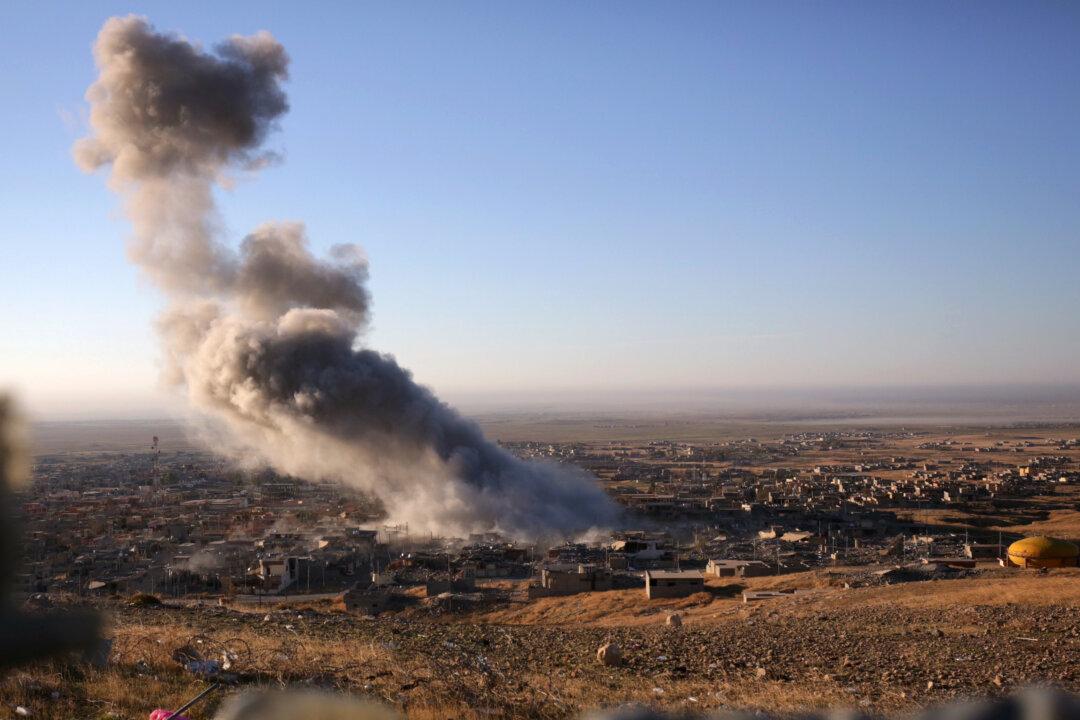BEIRUT— A new wave of airstrikes targeting the Syrian city of Raqqa, the headquarters of the extremist Islamic State (ISIS) and the focus of an international military campaign, killed at least eight people, including five children, Syrian opposition groups said Friday.
The strikes came as France’s foreign minister, Laurent Fabius, declared that destroying the ISIS headquarters and “neutralizing and eradicating” the extremist group is the main objective of the international campaign.
It wasn’t immediately clear who carried out the latest airstrikes. The city in northern Syria is the group’s de facto capital and has become the focus of international airstrikes in the wake of the Paris terror attacks and the bombing of a Russian jetliner over Egypt’s Sinai Peninsula. ISIS has said it was behind both attacks.
Those developments have turned the world’s attention to the fight against ISIS at a time when the international community is trying to engage Syrians in a diplomatic process that would lead to a political transition in the war-ravaged country.
That process faces enormous hurdles, including the fate of President Bashar Assad and agreeing on which armed factions in Syria should be allowed to take part in negotiations.
Speaking in Moscow at a joint news conference with the Syrian foreign minister Friday, Russian Foreign Minister Sergey Lavrov said Friday that peace talks for Syria cannot go ahead until all parties involved agree on a list of which groups should be listed as terrorist and which as legitimate opposition.
“Vienna talks cannot go ahead productively without such a list of terrorists and a list of opposition groups,” Lavrov said, adding that the lists should be vetted by the U.N. Security Council.
Syrian Foreign Minister Walid al-Moallem scoffed at those who call on Assad to step down, comparing them to “those who dream of the devil in heaven.”
“All those who demanded the resignation of Assad have left and Assad remained,” he said, adding that elections will decide who stays and who goes.
Al-Moallem also seized on comments made by Fabius Friday in which he suggested France could work with Syrian government forces to fight ISIS.





